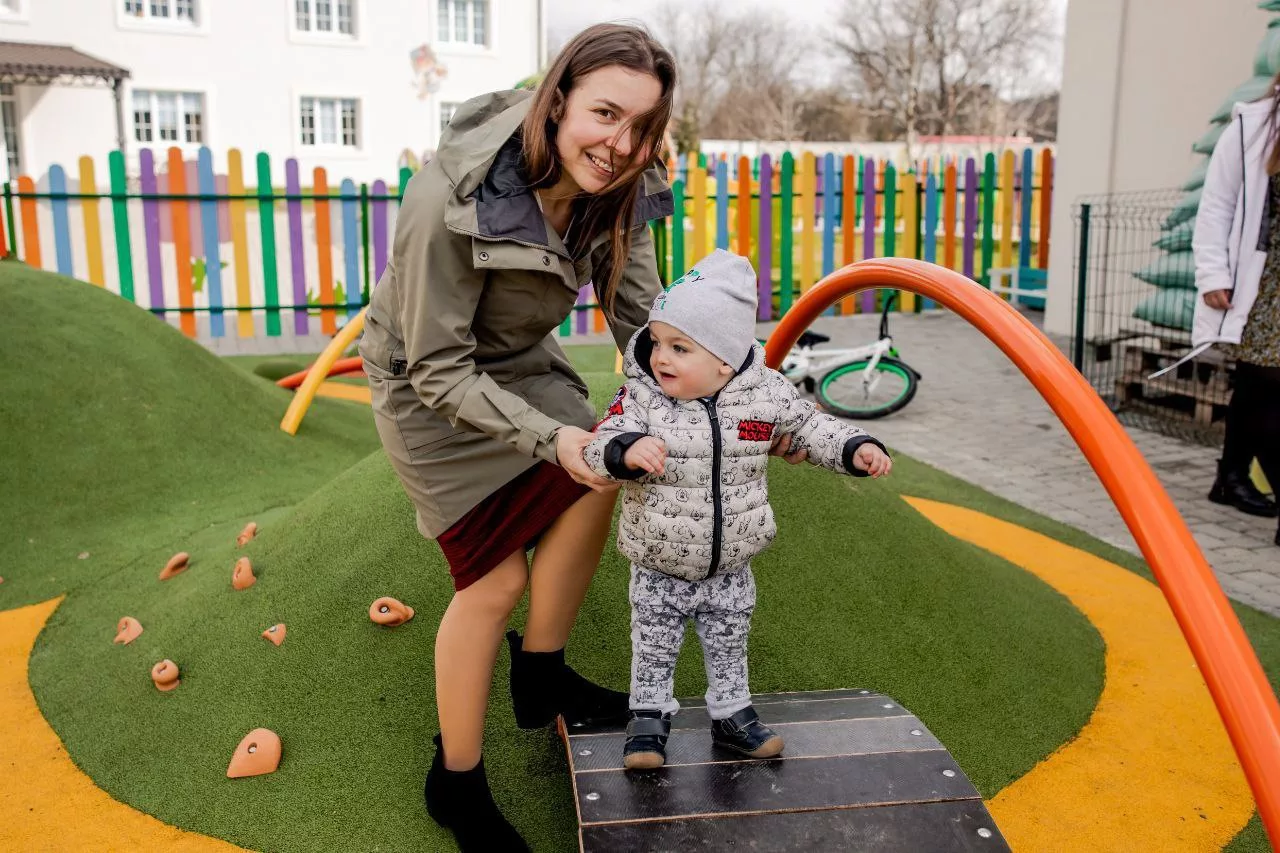Liubov Dushkova is 33 years old, she is a rehabilitation specialist. At the beginning of the full-scale invasion, the woman went to volunteer at the “City of Good” centre, where orphans from the Mykolaiv region were evacuated. There she helped children in the rehabilitation process, in particular, 6-month-old Zakharchyk, whom she decided to adopt a few weeks later. In an interview, Liubov talked about her decision to adopt and rehabilitate the child during the war.
“At that time, I did not plan to adopt a child at all. I just wanted to help rehabilitate children with cerebral palsy.”
At that time, the international support centre for women and children “City of Good” in Chernivtsi admitted 63 children to the orphanage. Zakharchyk was among them.
“When I first saw the little one, I did not feel any impulses of love. He was just under 6 months old. He was recumbent and almost constantly asleep. Furthermore, he ate very little. He had pronounced hydrocephalus. I remember, everything was in saliva, he did not swallow saliva. He was very small. That is, such a child did not arouse sympathy.”
Liubov says, she worked with the child for 3 hours a day. Due to the increase in the number of rehabilitation services, Zakharchyk was getting better. After three weeks of rehabilitation, the woman decided to take the child in.
“I felt that I was constantly thinking about him. It seems to me that it was then that I became a mother. Not from the moment when I took him into my family, but from the feeling of “protecting him”. It was simply incredible.”
In order to become a guardian of a child, Liubov studied. However, according to her, the most difficult part of this process was the collection of documents. This process took almost a year.
“If he was born before the invasion, I would not have been able to adopt him. He was born after, so his story was known. He was abandoned in the maternity hospital. That is, he immediately got into a boarding school.”
Now Zakharchyk is one and a half years old. He can run, jump, play with peers. Liubov says that only doctors’ conclusions remind her of his condition and previous diagnoses.
